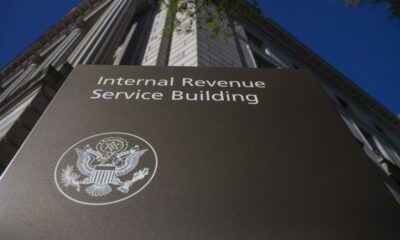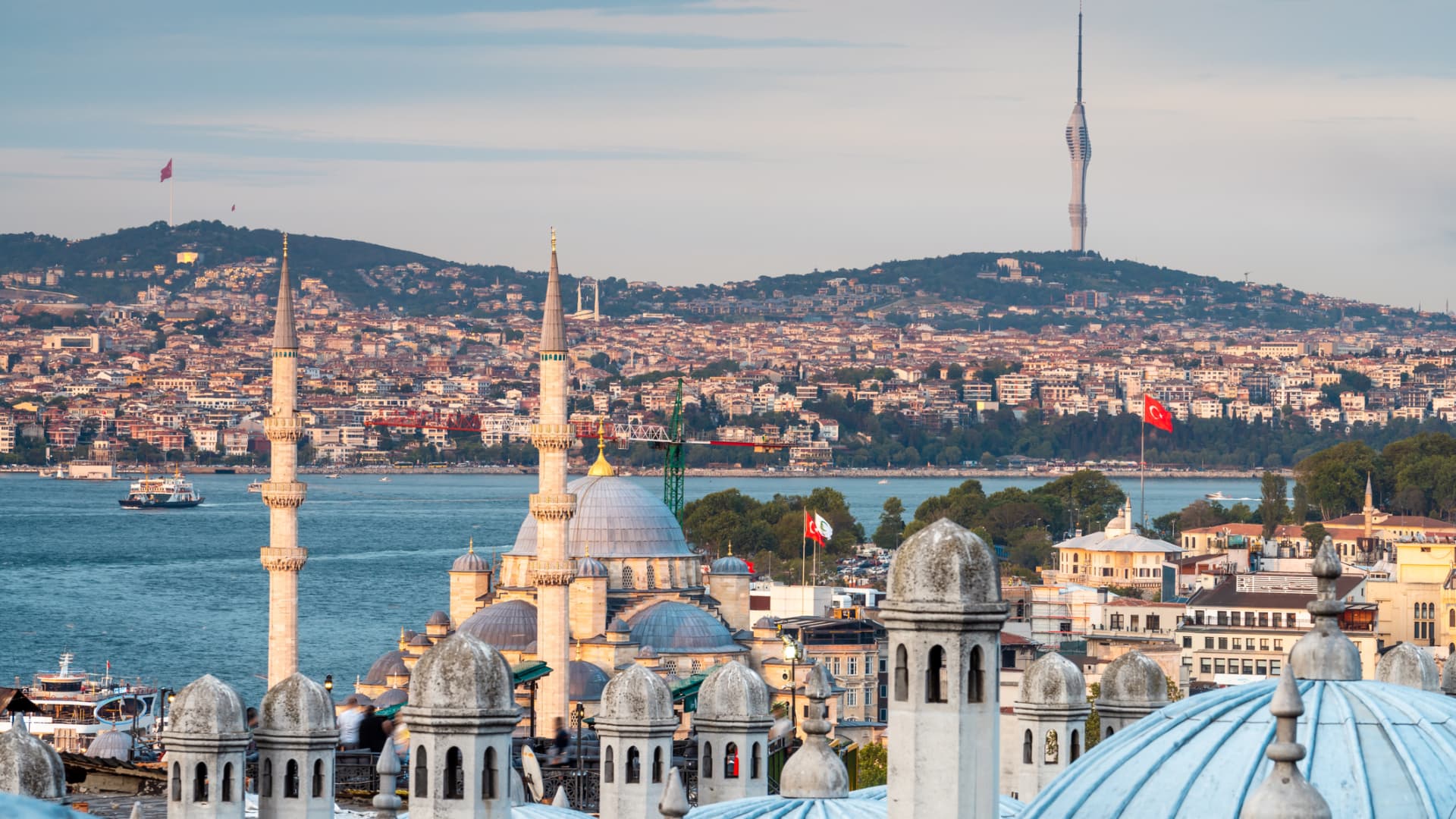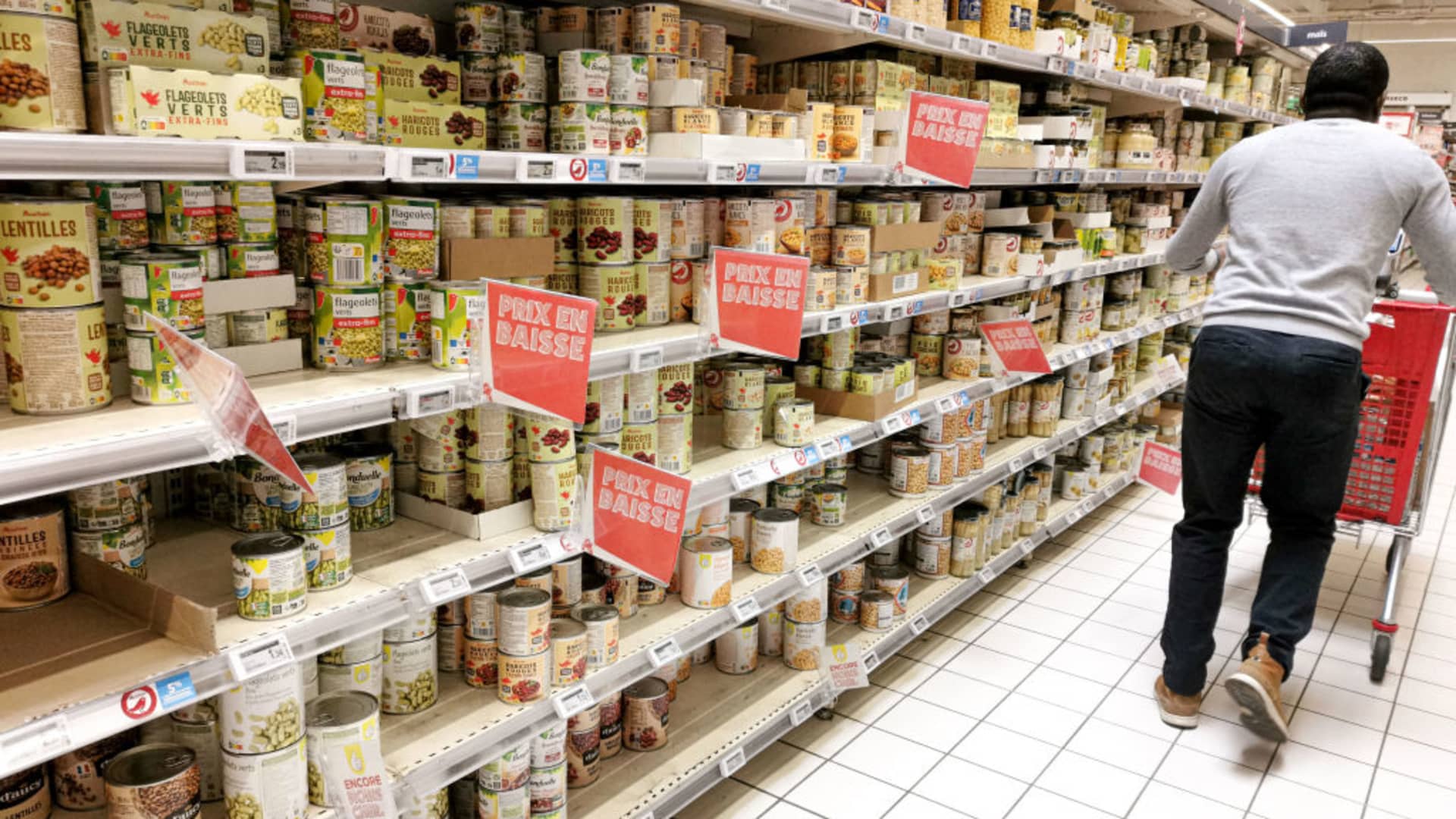U.S. President Donald Trump speaks alongside entertainer Kid Rock before signing an executive order in the Oval Office of the White House on March 31, 2025 in Washington, DC.
Andrew Harnik | Getty Images
President Donald Trump is set Wednesday to begin the biggest gamble of his nascent second term, wagering that broad-based tariffs on imports will jumpstart a new era for the U.S. economy.
The stakes couldn’t be higher.
As the president prepares his “liberation day” announcement, household sentiment is at multi-year lows. Consumers worry that the duties will spark another round of painful inflation, and investors are fretting that higher prices will mean lower profits and a tougher slog for the battered stock market.
What Trump is promising is a new economy not dependent on deficit spending, where Canada, Mexico, China and Europe no longer take advantage of the U.S. consumer’s desire for ever-cheaper products.
The big problem right now is no one outside the administration knows quite how those goals will be achieved, and what will be the price to pay.
“People always want everything to be done immediately and have to know exactly what’s going on,” said Joseph LaVorgna, who served as a senior economic advisor during Trump’s first term in office. “Negotiations themselves don’t work that way. Good things take time.”
For his part, LaVorgna, who is now chief economist at SMBC Nikko Securities, is optimistic Trump can pull it off, but understands why markets are rattled by the uncertainty of it all.
“This is a negotiation, and it needs to be judged in the fullness of time,” he said. “Eventually we’re going to get some details and some clarity, and to me, everything will fit together. But right now, we’re at that point where it’s just too soon to know exactly what the implementation is likely to look like.”
Here’s what we do know: The White House intends to implement “reciprocal” tariffs against its trading partners. In other words, the U.S. is going to match what other countries charge to import American goods into their countries. Most recently, a figure of 20% blanket tariffs has been bandied around, though LaVorgna said he expects the number to be around 10%, but something like 60% for China.
What is likely to emerge, though, will be far more nuanced as Trump seeks to reduce a record $131.4 billion U.S. trade deficit. Trump professes his ability to make deals, and the saber-rattling of draconian levies on other countries is all part of the strategy to get the best arrangement possible where more goods are manufactured domestically, boosting American jobs and providing a fairer landscape for trade.
The consequences, though, could be rough in the near term.
Potential inflation impact
On their surface, tariffs are a tax on imports and, theoretically, are inflationary. In practice, though, it doesn’t always work that way.
During his first term, Trump imposed heavy tariffs with nary a sign of longer-term inflation outside of isolated price increases. That’s how Federal Reserve economists generally view tariffs — a one-time “transitory” blip but rarely a generator of fundamental inflation.
This time, though, could be different as Trump attempts something on a scale not seen since the disastrous Smoot-Hawley tariffs in 1930 that kicked off a global trade war and would be the worst-case scenario of the president’s ambitions.
“This could be a major rewiring of the domestic economy and of the global economy, a la Thatcher, a la Reagan, where you get a more enabled private sector, streamlined government, a fair trading system,” Mohamed El-Erian, the Allianz chief economic advisor, said Tuesday on CNBC. “Alternatively, if we get tit-for-tat tariffs, we slip into stagflation, and that stagflation becomes well anchored, and that becomes problematic.”
The U.S. economy already is showing signs of a stagflationary impulse, perhaps not along the lines of the 1970s and early ’80s but nevertheless one where growth is slowing and inflation is proving stickier than expected.
Goldman Sachs has lowered its projection for economic growth this year to barely positive. The firm is citing the “the sharp recent deterioration in household and business confidence” and second-order impacts of tariffs as administration officials are willing to trade lower growth in the near term for their longer-term trade goals.
Federal Reserve officials last month indicated an expectation of 1.7% gross domestic product growth this year; using the same metric, Goldman projects GDP to rise at just a 1% rate.
In addition, Goldman raised its recession risk to 35% this year, though it sees growth holding positive in the most-likely scenario.
Broader economic questions
However, Luke Tilley, chief economist at Wilmington Trust, thinks the recession risk is even higher at 40%, and not just because of tariff impacts.
“We were already on the pessimistic side of the spectrum,” he said. “A lot of that is coming from the fact that we didn’t think the consumer was strong enough heading into the year, and we see growth slowing because of the tariffs.”
Tilley also sees the labor market weakening as companies hold off on hiring as well as other decisions such as capital expenditure-type investments in their businesses.
That view on business hesitation was backed up Tuesday in an Institute for Supply Management survey in which respondents cited the uncertain climate as an obstacle to growth.
“Customers are pausing on new orders as a result of uncertainty regarding tariffs,” said a manager in the transportation equipment industry. “There is no clear direction from the administration on how they will be implemented, so it’s harder to project how they will affect business.”
While Tilley thinks the concern over tariffs causing long-term inflation is misplaced — Smoot-Hawley, for instance, actually ended up being deflationary — he does see them as a danger to an already-fragile consumer and economy as they could tend to weaken activity further.
“We think of the tariffs as just being such a weight on growth. It would drive up prices in the initial couple [inflation] readings, but it would create so much economic weakness that they would end up being net deflationary,” he said. “They’re a tax hike, they’re contractionary, they’re going to weigh on the economy.”
Get Your Ticket to Pro LIVE
Join us at the New York Stock Exchange!
Uncertain markets? Gain an edge with CNBC Pro LIVE, an exclusive, inaugural event at the historic New York Stock Exchange.
In today’s dynamic financial landscape, access to expert insights is paramount. As a CNBC Pro subscriber, we invite you to join us for our first exclusive, in-person CNBC Pro LIVE event at the iconic NYSE on Thursday, June 12.
Join interactive Pro clinics led by our Pros Carter Worth, Dan Niles, and Dan Ives, with a special edition of Pro Talks with Tom Lee. You’ll also get the opportunity to network with CNBC experts, talent and other Pro subscribers during an exciting cocktail hour on the legendary trading floor. Tickets are limited!

 Economics5 days ago
Economics5 days ago
 Personal Finance6 days ago
Personal Finance6 days ago
 Economics6 days ago
Economics6 days ago
 Economics5 days ago
Economics5 days ago
 Personal Finance6 days ago
Personal Finance6 days ago
 Economics4 days ago
Economics4 days ago
 Accounting4 days ago
Accounting4 days ago
 Personal Finance1 week ago
Personal Finance1 week ago





















